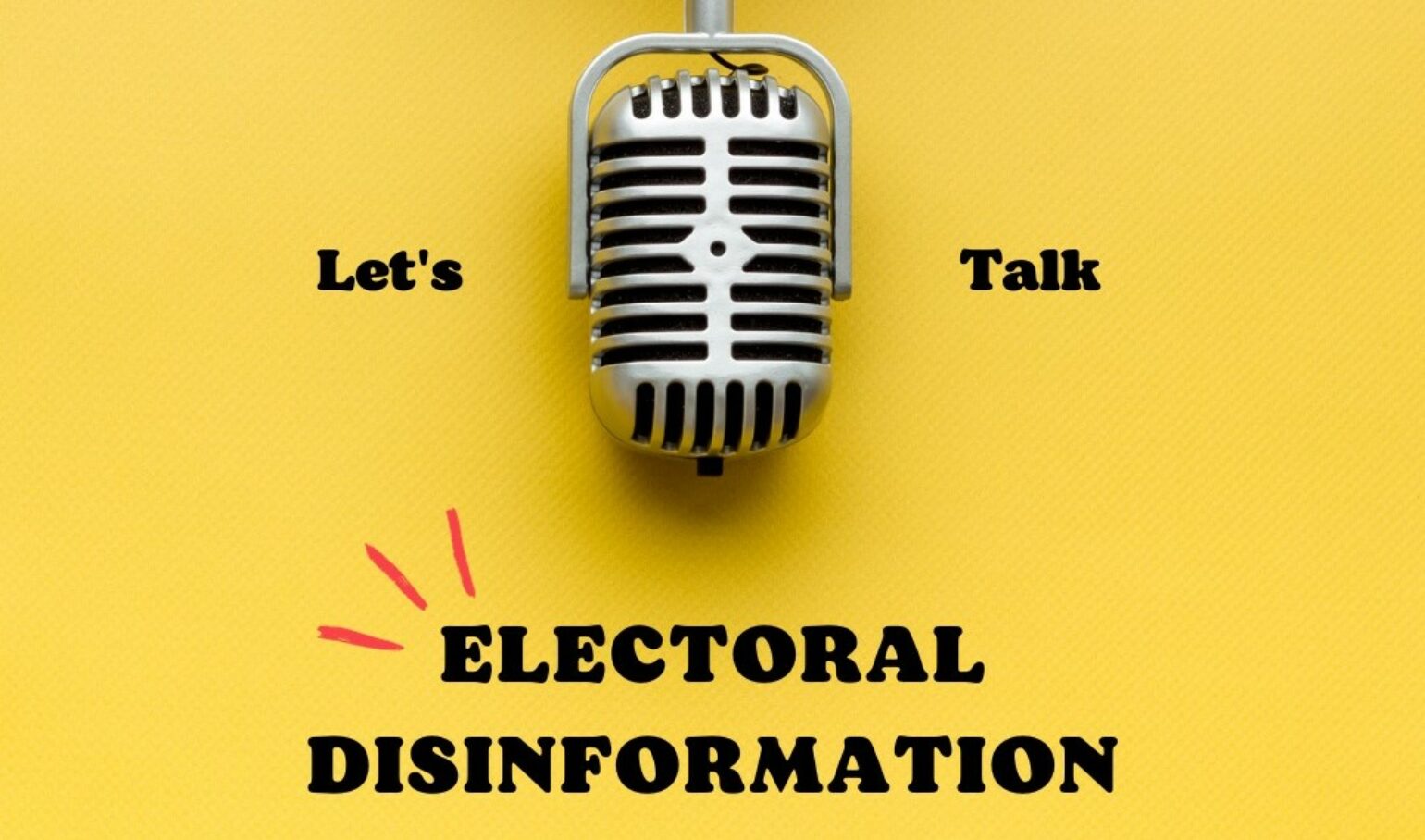Islamabad, Pakistan — Media Matters for Democracy (MMfD) has launched a new webinar series, “Let’s Talk Electoral Disinformation”, to shed light on the challenges and threats to democratic processes in the age of digital media in Pakistan. The first episode, which was streamed live on Facebook on Monday, 9th October, focused on the role of electronic media in countering electoral disinformation.
Moderated by MMfD’s Communications Manager Ayesha Khalid, the webinar featured journalist Majid Nizami and media development specialist Asad Baig, who is also MMfD’s Founder. The discussion primarily revolved around the forthcoming general election and connected challenges, including the conventional media’s approach to managing the large volume of information during electoral processes and audiences’ increasing reliance on social media platforms for news consumption.
Nizami said the role of media has increased significantly at the intersection of election and politics over the past five years. The accessibility to social media platforms has resulted in versatile opinions among the public; however, the convenience afforded by digital media has also raised concerns regarding the authenticity of a given piece of information. This places added responsibility on the electronic media, which is already facing credibility issues in a developing economy such as Pakistan, where lack of sufficient investments and digital investigation skills illustrate a gloomy outlook for news outlets.
Baig, on the other hand, stressed the need for a collaborative approach within the local media to counter electoral misinformation. Although he admitted the measure would pose challenges related to resources and consensus among media houses, they can begin with small steps towards raising awareness about mis- and disinformation during electoral events. For instance, news outlets can start reporting on issues or factors that fuel misinformation. This may include familiarising viewers with the algorithmic infrastructure at online platforms that facilitates misleading content and enables tech companies to reap profits from high engagement generated by potentially harmful material.
Nizami pointed out that the “race” to report on developments first also leads to the quality of news coverage getting compromised by news organisations. He remarked news channels should fully take responsibility for their actions if they carry a misreported piece of information. This may be a result of overlooking the need to authenticate the news source amid the highly charged atmosphere in newsrooms during elections, as channels often go ahead by attributing the news to “sources” rather than digging into its origins and credibility.
While Baig appreciated the digital investigation initiatives launched by various news organisations, prominently Geo Fact Check, he said there is still a long way to go as far as countering disinformation is concerned. He emphasised the importance of possible state interventions, such as by the Election Commission of Pakistan (ECP), in the form of social media campaigns in collaboration with local nonprofits that are working on mis/disinformation across Pakistan. Transparency is also required around social media cells, which are set up by political parties locally or abroad prior to the elections, to spread awareness regarding their functioning and influence on public opinion.
You can watch the webinar here: https://fb.watch/nzAN2MsrN3/?mibextid=Nif5oz
More episodes to follow

